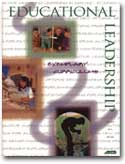Educators across the globe are looking for curriculums that help students to think critically and to be socially responsible. Many seek curriculums that are accessible to different learners and would help to improve the rates at which girls and other underserved or excluded groups participate in formal education.
Yet it has been surprisingly difficult for educators from different countries and cultures to have a constructive dialogue about these needs, and to begin to share ideas and curriculum resources. Not only are there different ways of defining "curriculum," but it's also difficult to agree on a suitable translation of the term from one language to another!
At the United Nations Educational, Scientific, and Cultural Organization (UNESCO), we believe that such difficulties are worth confronting. For example, for the past two years, we have been collecting examples of curriculums in general secondary education from around the world. These curriculums are designated by their developers as exemplary, either because they reflect a new approach or because they are appropriate for adaptation by another country. (No qualitative judgments were made on the relative merits of the materials from one country in relation to those from another, because the goal was to encourage communication among nations rather than to make direct recommendations.)
- From Austria: "Violence at School. Violence Against Girls. Gender Aspects and Prevention" and "Falling Out of the Role: Practical Help for Gender Education in School."
- From Swaziland: "Developmental Studies," a program intended "to integrate concepts of history, geography, health education, sociology, anthropology, civics, environmental education, and economics."
- From Indonesia: "Sekola Menengah Pertama (SMP) Terbuka," which translates from Bahasi Indonesian into "The Open Junior Secondary School," describes the use of distance learning to expand the number of rural children participating in secondary education.
- From Belarus: "A Foreign Language Teacher's Handbook" and "Communicating While Teaching/Learning English: A Handbook for Teachers of English."
Curriculums are as unique as snowflakes. But educators who struggle with similar problems can learn much by studying the approaches of others. To that end, we have collected these curriculum materials in a curriculum repository. Entries have been summarized in English and in French, and a person or office to contact has been designated for each entry. In many cases, the curriculums are free of charge from their contributors.
The deadline for entries to the curriculum repository has just passed, and we will review and summarize all entries this year. Late this year, UNESCO will publish the document and prepare a Micro-ISIS database version. Eventually, the curriculum repository will go on the Internet.
